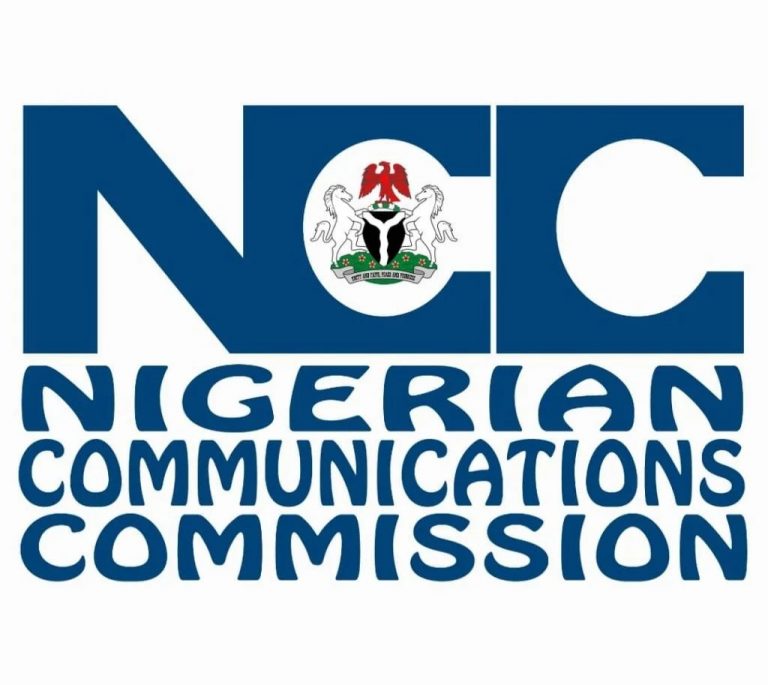Communication
Boko haram: Mobile phone Giants MTN,Airtel & Globacom threatens to withdraw services from Northern Nigeria

ABUJA-FOLLOWING the continued attacks on telecommunications base stations in the Norther parts of Nigeria, The umbrella body of telecommunication operators, Association of Licensed Telecommunications Operators of Nigeria, ALTON, has announced – MTN, GLO, Airtel and Etisalat will cut off services from the North after terrorists attacked public buildings, telecommunications facilities and military structures in some northern states; attacks which have already cost them a whopping N1.03bn.
Gunmen, yesterday reportedly bombed a base station belonging to an indigenous telecoms infrastructure company, IHS Nigeria, in Kano, barely 24 hours after the attack on several base stations in Borno, Yobe, Bauchi and Gombe states. Communications in the state with cell phones have been disrupted. ALTON officials put the number of base stations vandalized in the north at 26. The ALTON president said an emergency meeting of the association’s executives had been called for today (Friday) to decide on what next to do.
However,In a swift reaction claiming responsibility for mast and base stations bombings in parts of the North , Boko Haram says it sets its sight on VOA and primary schools. The extremist sect, Jama’atu ahlis sunnah lil daawati wal jihad, popularly called Boko Haram,which has launched an incessant wave of terror attacks on churches and other public places in the North, including the United Nations building in Abuja claimed responsibility for attacking telecommunication base stations in Borno, Yobe, Bauchi, and Kano states saying it was its way of punishing them for alleged culpability in aiding security agencies to kill its members.
“If it becomes impossible to continue to do business in the face of rising attacks on telecoms sites, operators will naturally suspend operations in the area, ALTON President Gbenga Adebayo said, adding; “This is because beyond base stations, these elements may begin to target telecoms operators‘ offices and data centers among other key infrastructure. That is why it is important that the situation is curtailed before it gets to that point.“
Eye-witness accounts said one of the company’s base stations was bombed in Borno on Wednesday while another one was bombed in Kano on Thursday morning. Just like they did in Borno State, the terrorists set ablaze the service-base masts of Airtel, Glo and Etisalat in Potiskum and Damaturu yesterday, allegedly killed 16 people, including the Yobe Government House Protocol Officer, Mallam Adamu, who was returning from work. An attendant in the morgue at the Sani Abacha Specialists Hospital, Damaturu told Huhuonline.com that men of the Joint Task Force, JTF and police brought in 16 bodies yesterday morning to the hospital.
The JTF in Borno State yesterday said terrorists’ attacks on telecom masts were designed to “disrupt” communication services and prevent residents from providing information on the activities of gunmen to the military and the police so that they can protect life and property. JTF spokesman Lt.-Col. Sagir Musa, in a press statement issued in Maiduguri, said that the terrorists had turned to the destruction of Global System of Mobile Communication (GSM) masts and other communication facilities in some areas of Maiduguri to frustrate residents from giving the military vital information.
“Members of public are therefore, reminded to continue to give credible information to the JTF, the police and other security agencies to contain the ugly trend through the following telephone numbers – 08064174066, 08154429346, and 07065464012,” he said
Telecoms infrastructure analysts in the country have put the average cost of a base station at $250,000, which amounts to N39.47m at an exchange rate of N157.91 to a dollar as at Thursday. With 26 base stations already destroyed, an investment of N1.03bn might have gone down the drain.
Contrary to the belief that only MTN, Airtel and Glo were affected, the Executive Secretary, ALTON, Mr. Gbolahan Awonuga, said the attack affected all telecoms operators, including Multilinks and Helios Tower.
A formal report sent by Multilinks to ALTON, which was made available to newsmen confirmed that Multilinks base stations located at Mainok Village, Borno and another one at Abari Village in Damaturu, were damaged. The report said, “Reports obtained from our personnel indicate that extremists numbering about 40 stormed the area at about 22:20 Hrs on 05/09/2012 and immediately launched an attack on the MTN cell site. After the attack on MTN cell site, the extremists proceeded to our site which is close to the MTN site to launch a similar attack.
Stakeholders urged the Federal Government to wade into the issue to ensure that the safety of lives of operators’ personnel and agents was assured. Key stakeholders had called on the Federal Government to bestow on ICT infrastructure a Critical National Security Infrastructure pending the time appropriate laws would be enacted to strengthen it.
Disturbed by the attacks, the Nigerian Communications Commission (NCC) has called for quick passage of the Telecom Infrastructure Bill, which seeks to make telecommunication infrastructure a critical national infrastructure. Director, Public Affairs of the NCC, Mr. Tony Ojobor, who made the appeal yesterday in Abuja, said that the bill, if passed into law, would make it a criminal offence and economic sabotage for anyone to vandalise telecom infrastructure in the country.
He explained that the commission had not received formal report on the number of base stations affected in the attack and their locations, adding that as a regulator, the commission expects service providers to get in touch with the commission whenever there are issues affecting quality of service in the country
Boko Haram claims responsibility
“We are attacking GSM companies because they have helped security agencies to arrest and kill many of our members, and we will continue with our attacks on them until they stop,” Mr. Abu Qaqa, spokesperson for the sect enthused.
Mr. Qaqa’s statement came just as security officials lambasted the sect, and faulted its logic that telecommunication companies had a hand in the killing of its members. “How can they say telecom companies are aiding security forces to arrest their members when a lot of them are tired and disgruntled” said a Joint Task Force official who argued that the difficulties the sect is currently facing has its root in internal rebellion and the counter response of victims.
“Did they register their SIM cards as Boko Haram members?” the JTF official queried adding that security agencies have no need for telecommunication companies to arrest sect members.
In its message, Boko Haram also expanded on its operational objectives beyond the establishment of an Islamic state, putting on notice those that try to prevent them as enemy that will be “fought with all we have”.
Mr. Qaqa put the Hausa service of the Voice of America in this category accusing the international broadcaster for “fighting against Islamic religion”. For all journalists working with the broadcaster, the sect promised a reward of blood, adding “We advise any reporter or correspondent working with the station to resign, otherwise we will not hesitate to harm any of them we come across anywhere.”
any of them we come across anywhere.”
Mr. Qaqa also said the sect will intensify attacks on primary schools as a result of the “attack on Islamic schools by security agencies” boasting that the recent resolve by governors and traditional rulers in the north to fight the sect “will come to nothing”.
Communication
Nigeria’s Telecom Market Eyes $11.43bn Value By 2029

In a significant market projection, Mordor Intelligence predicts that the Nigerian telecom sector is set to surge to a value of $11.43 billion by 2029.
The report anticipates a steady growth trajectory with a cumulative average growth rate (CAGR) of 4.70% between 2024 and 2029, based on the current market value of $9.09 billion.
The transformation of Nigeria’s telecom landscape, fueled by government initiatives to boost internet infrastructure and broadband connectivity, coupled with rising data consumption, 5G deployments, and innovative strategies from major telecom players, is expected to drive this substantial market expansion.
The report underscores additional factors propelling the growth of Nigeria’s telecom sector, emphasizing the surge in smartphone adoption.
the report said “Increased smartphone adoption in Nigeria has fueled the development of a dynamic digital services sector. Currently, millions of Nigerians use mobile apps, including social networking sites, e-commerce, and financial services.
“These apps could leverage smartphones’ capabilities to offer speed, convenience, and efficiency, encouraging more people to invest in smartphones.
“In addition to these expansions and collaborations, the growing adoption of digital technologies and government support in aiding the same alongside the 5G technology implementation across the country is analyzed to boost the demand for telecom towers significantly.”
“In addition to these expansions and collaborations, the growing adoption of digital technologies and government support in aiding the same alongside the 5G technology implementation across the country is analyzed to boost the demand for telecom towers significantly.”
Mordor Intelligence highlights that the flourishing e-commerce and digital service platforms in Nigeria are significant drivers behind the escalating demand for dependable telecom services in the country.
Communication
MTN Set To Partially Disconnect Glo Network

The Nigerian Communications Commission (NCC) has granted MTN’s request to partially disconnect Globacom (Glo) from its network owing to unsettled interconnect charges.
Reuben Muoka, the NCC’s Director of Public Affairs, disclosed this in a document named ‘Pre-Disconnection Notice’ on Monday.
The move follows Glo’s persistent failure to clear its outstanding debts despite multiple attempts to resolve the issue.
Under this partial disconnection, Globacom subscribers will solely receive calls from MTN users, while retaining access to other network services like outgoing calls to other networks and data services.
However, they won’t be able to initiate calls to MTN users during this period.
The statement read, “All subscribers are, therefore requested to take notice that the Commission has approved the Partial Disconnection of Globacom to MTN in accordance with Section 100 of the Nigerian Communications Act, 2003 and Paragraph 9 of the Guidelines on Procedure for Granting Approval to Disconnect Telecommunications Operators, 2012.
“At the expiration of 10 days from January 8, 2024, subscribers of Globacom will no longer be able to make calls to MTN but will be able to receive calls.
“The Partial Disconnection, however, will allow in-bound calls to the Globacom network,” it added
Communication
Despite Hardship Nigerians Spent N3.33tn On Calls, Data In 2022

Nigerian telecommunication users, along with others within the country, expended a total of N3.33 trillion on various telecom services such as calls, data, SMS, and more throughout 2022, according to the Nigerian Communications Commission (NCC).
This information comes from the recently published ‘2022 Subscriber/Network Data Annual Report’ by the NCC, which also revealed that telecom companies generated N3.33 trillion in overall revenue for that year.
The report further highlights a noteworthy growth of active voice subscriptions, rising from 195,463,898 subscriptions in 2021 to 222,571,568 by December 2022, marking a 13.86% year-on-year increase.
Commenting on the increase, it said, “The increase in the Operators’ subscriber base was attributed to a number of reasons which includes subscriber loyalty, promos, seasonal effects, aggressive consumer acquisition drive, and competitive product offerings across all the networks.”
It noted that the growth in active subscriptions impacted positively on other derived telecom indicators such as teledensity, Internet penetration as well as broadband penetration.
Data usage also continued its surge in 2022. It increased by 46.77 per cent to 518,381.78TB as of the end of the year.
The NCC stated, “There was an increase in the volume of data consumed at the year-end December 2022 when compared with the year-end December 2021.
“The total volume of data consumed by subscribers increased to 518,381.78TB as of December 2022 from 353,118.89TB as of December 2021. This represents an increase of 46.77 per cent in data consumption within the period.”








